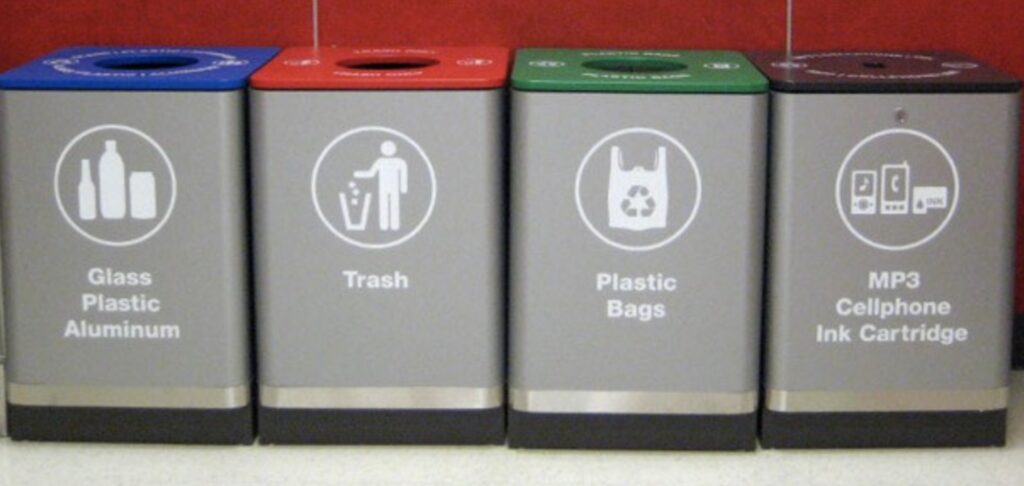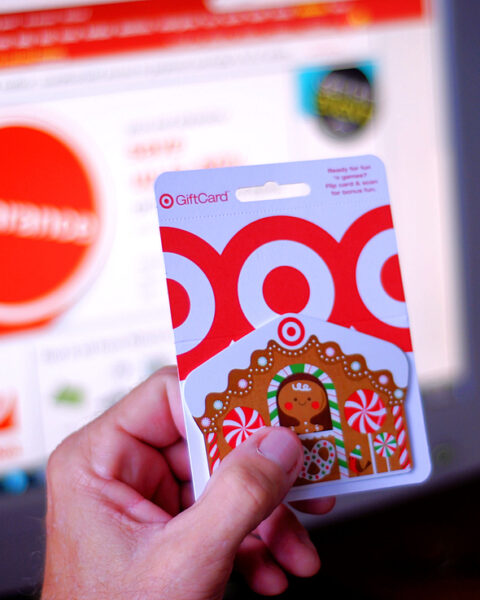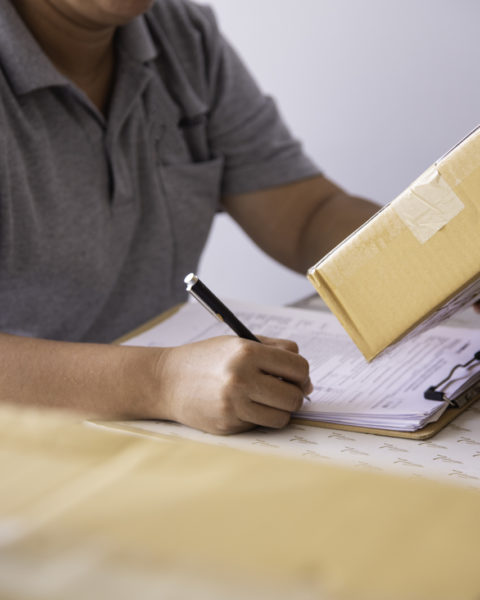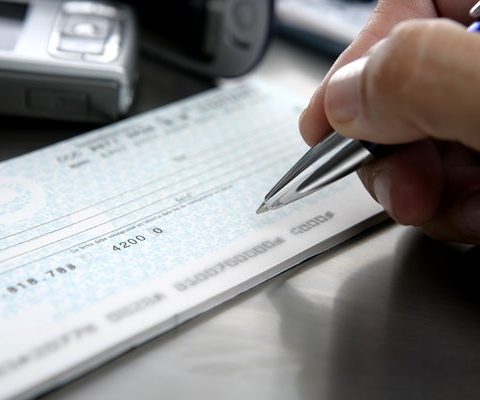Target accepts all single-use plastic bags for recycling through their in-store plastic bag recycling kiosks. These kiosks can be found at Target stores across the country, regardless of regional plastic bag legislation. Usually placed near the entry and exit doors, these kiosks are easy to use by anyone, regardless of whether they’re shopping at Target.
Target also accepts glass, plastic, and aluminum bottles for recycling, as well as MP3 players (such as old iPods), cell phones, and printer ink cartridges.

Unlike some recycling receptacles such as bottle return kiosks, Target’s plastic bag recycling stations do not provide cash compensation.
Once Target collects your plastic bags and other recyclables, these materials are sent to waste-sorting facilities. These facilities then send all plastic materials to other facilities that can turn the plastic into a reusable form.
According to Earth911.com, recycled plastic bags are “chipped” into a pellet-like material and then used to either create new plastic bags or create something called “plastic lumber.”
Contents
Types Of Recyclable Plastics
Most plastic materials are recyclable in some way. However, some plastics are much easier to recycle than others. To find out what kind of plastic is recyclable through your city or region’s recycling program, check the number on the bottom of your plastic containers and reference this against the informational materials provided by your waste collector.
As a rule, city waste collection services do not accept plastic film or bags for recycling, which is why stores like Target have created opportunities for consumers to recycle these materials.
Target accepts the following plastic items for recycling:
- Any single-use plastic bag
- Plastic beverage bottles
- Devices made of plastic such as cell phones or MP3 players
- Printer ink cartridges made from plastic and other materials
Even though Target’s carryout bags are considered reusable, they can still be recycled through Target’s plastic bag recycling receptacles. As a rule, if it’s a plastic bag, then you can probably recycle it at Target.
The Right Way To Recycle Plastic
To properly dispose of your plastic bag or other single-use plastic item, follow these steps:
- First, empty the bag or container of any contents
- If the plastic is dirty in any way (oil, food residue, etc.), clean it thoroughly with soap and water and allow it to dry
- Once your plastic bags are clean and dry, they can be disposed of in any designated plastic bag recycling receptacle
If you have more than a few bags to recycle, you can place all of your clean plastic bags inside of one bag and recycle your whole “bag of bags” at the same time. It’s easy to keep a plastic bag hanging up somewhere in your home where you can place all of your to-be-recycled bags when you’re done using them. Then, once the bag is full, simply drive to the nearest Target or anywhere else with a recycling kiosk, and toss the bag in.
Reusing Plastic Bags At Home
Remember that recycling is not the only way to keep plastic bags out of the landfill.
You can also save and reuse your plastic bags at home for a wide variety of uses. Most plastic bags, especially Ziploc and other kitchen-use bags are made with thick plastics that can hold up to repeated use.
To cut down on my plastic bag use, I wash and dry my plastic food bags once they’re empty. Then I can reuse them again and again. Eventually, when they start to wear out, I recycle them. But overall, this cuts down drastically on the amount of new bags I have to use each year.
Why Recycle?
According to EnvironmentAmerica.org, “Americans use more than 100 billion plastic bags each year.” This amounts to more than 300 bags per person per year. The same page also notes that while a plastic bag takes about 1,000 years to decompose, each bag is only used for an average of about 12 minutes.
A disturbing UNESCO statistic tells us that over 100 million marine animals die each year as a result of plastic debris in the oceans and other waterways. And a large portion of this debris is made up of plastic bags.
Clearly, not recycling plastic bags properly is a major problem for the health of our environment and the beings that live in it. But wild animals aren’t the only ones being harmed by plastic waste.
When plastic bags end up in the ocean, they break down into small plastic particles known as “microplastics.” These microplastics end up in our food and water supplies, eventually ending up in our own bodies. In recent years, researchers have begun finding microplastics in human blood samples and even lung tissue.
While it may not seem like the biggest deal in the world when you throw a plastic bag in the garbage, it turns out that the consequences are far greater than we had previously imagined.
Laws Governing Plastic Use
In response to our relatively newfound understanding of how plastic waste affects our bodies and our environment, governments have begun passing legislation to better control the use and reuse of single-use plastics.
As of 2023, ten US states have completely banned the use of single-use plastic bags–California, Connecticut, Delaware, Hawaii, Maine, New Jersey, New York, Oregon, Washington, and Vermont.
In some of these states, however, retailers are allowed to distribute plastic bags as long as they provide a convenient receptacle where plastic bags can be collected and recycled.
Other states have also made exceptions for plastic bags that are sturdy enough to be considered reusable. For example, Washington State permits businesses to distribute plastic carryout bags as long as those bags are made with at least 40% recycled plastic and have a minimum thickness of 2.25 mil. These bags must also come with a minimum charge of 8 cents.
In accordance with this law and others similar to it, all of Target’s carryout bags (both in Washington State and beyond) are made with a minimum of 40% recycled content.
Other Stores That Recycle Plastic Bags
Most major grocery retailers offer plastic bag recycling, including but not limited to…
- Kroger (includes Fred Meyer and QFC)
- Safeway
- Walmart
- Whole Foods
Other stores that offer plastic bag recycling include…
- Kohl’s
- Lowe’s
- Home Depot
To find a plastic bag dropoff location near you, visit BagAndFilmRecycling.org to use their drop-off directory.






